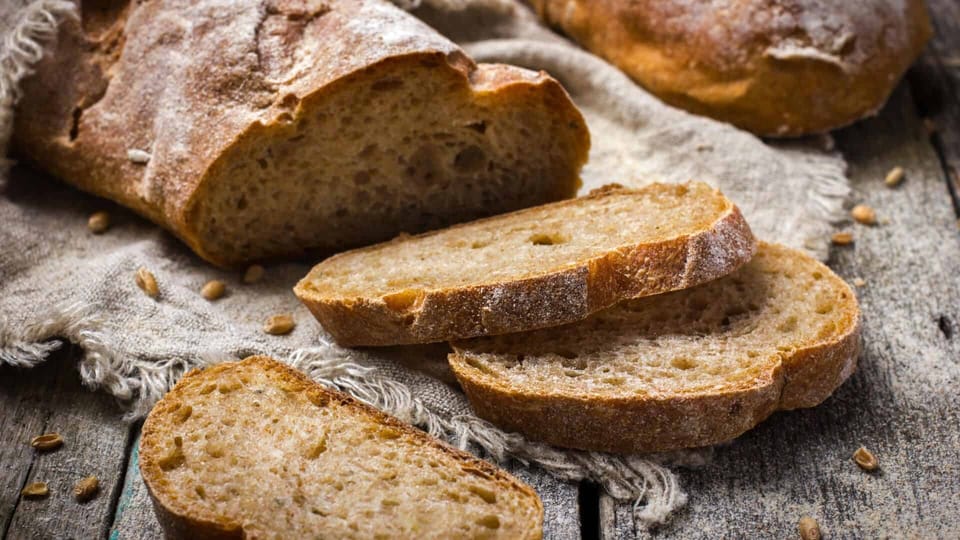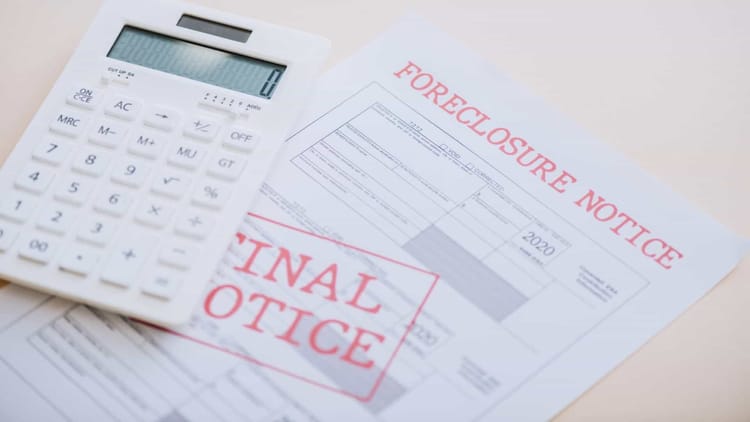Daily Bread (Matthew 6:11)

Big Idea: God cares for your needs, and wants you to learn to trust him one day at a time.
Planting a church has had its highs and lows.
One of the lows was the time, early on, when I didn’t have much money in my bank account. In fact, our account was overdrawn. I wrote a check for my offerings to our new church plant, but I couldn’t give it to the church because I didn’t have money in my account.
The reason I was overdrawn is that the church didn’t have enough money to pay me. I had a cheque made out to cover my salary, but there wasn’t enough money in the church’s bank account to cover my paycheck. I felt discouraged.
And so I visited a potential donor. We had a nice lunch, but he told me that times were tough for him and he didn’t have any money to give. I went home that day incredibly discouraged. I was broke, the church was broke, and I’d just been turned down by my biggest donor. I had nowhere to turn.
On the way home I stopped at the church’s post office box. I remember opening it and seeing an envelope from a church that I knew. I’d never spoken at that church. I wasn’t expecting any money from that church. I opened the envelope, and there was one of the biggest donations we’d received as a church that day. I remember balling in the Shoppers Drug Mart where the P.O. Box was the time. I went to the bank, deposited the cheque, and also deposited my cheque as well.
We need provision. We need money in our bank accounts. We need enough to pay the bills and provide for our needs. No matter who you are, you know what it is to be concerned about the amount of money you have coming in and what you expect to receive in the future.
But money is complicated. Have a lot of money? That doesn’t mean your money problems are over. Now you’ve got to worry about keeping that money. Don’t have a lot of money? Then you face the anxiety about money. It doesn’t seem to matter if you have a lot or a little. Money anxiety seems to plague all of us.
Praying for Us
That’s why, in Jesus’ model prayer, Jesus teaches us to pray this simple prayer: “Give us this day our daily bread” (Matthew 6:11).
Jesus is teaching his disciples how to pray. He teaches us to begin by praying to our Father in heaven. He wants us to lean on the relational end of prayer. Prayer isn’t a performance or a ritual. It is a relationship with our loving Father who cares about us and who has the power and inclination to love us and care for us.
And then Jesus helps us see our part in a bigger story. We really are small. We are one of 8 billion creatures on a tiny planet. We are small characters in the big drama that God is unfolding in the world. Jesus wants us to get a sense of the bigness of his story, and to pray for the unfolding of that story, a story that’s about God’s glory and setting the world right again.
But that doesn’t mean that we can’t pray for ourselves too.
That’s why, as Jesus shifts to the second set of petitions in this prayer, he begins with our needs. He knows that our needs are top of mind. Sure, we should pray relationally, and we should pray about God’s kingdom, but we are still concerned about paying the bill next month too. We’re concerned about inflation and investments and mortgage rates. And it’s okay to bring that to God too. He cares for his children, including our physical needs too.
There are a lot of lessons about praying for our needs in this short little verse.
Lesson One: God really does care for you.
Consider this request in light of what Jesus has just taught us to pray.
I just read a book on the presidents of the United States. One of the feelings that hit each of the presidents as they took office is the magnitude of the job. They had so much to manage that it was impossible to even get their heads around the scope of the job.
If that’s true of the president of the United States, imagine God. God is in control of not just the entire world but the two trillion galaxies that exist in the world. Even if you just consider the earth, he is in charge of everything right down to the smallest amoeba up to the billions of people who exist on earth. He is in charge of all of history. He is running the entire universe.
And yet God cares about you. As Jesus said before teaching this prayer, God already knows what you need (Matthew 6:8).
Martyn Lloyd-Jones once said:
Is not this one of the most wonderful things in the whole of Scripture, that the God who is the Creator and Sustainer of the universe, the God who is forming His eternal kingdom and who will usher it in at the end, the God to whom the nations are but as ‘the small dust of the balance’—that such a God should be prepared to consider your little needs and mine even down to the minutest details in this matter of daily bread! But that is the teaching of our Lord everywhere.
God loves for you to come to him with your needs. He may be running the entire galaxy, but he cares for you as well. I can never get over what Peter says in 1 Peter 5:6-7: “Humble yourselves, therefore, under the mighty hand of God so that at the proper time he may exalt you, casting all your anxieties on him, because he cares for you.” Just think about that last phrase: he cares for you. He is very aware of what’s going on in your life. Nothing has escaped his notice. He wants you to come to him with your needs because he really does care for you.
Whenever you feel stressed about your finances, start here. God really does care for you. Whatever you’re worried about today, you can bring to him.
Lesson Two: God is the source of everything we have.
Where does your money come from?
I don’t know about you, but I struggle with a sense of self-sufficiency. When we’re children, we’re completely dependent on our parents. As we get older, we reach independence, although it takes kids a lot longer to get there today than it used to. Pretty soon and we think that what we have comes from our hard work, our intelligence, and our skills. You see this in many of the books that are written about how to succeed. Most of them ignore the reality that we can’t take credit for our own successes. A lot of what we have is a result not just of our own efforts, but because of things well outside our control.
That’s why Jesus teaches us to pray, “Give us this day our daily bread.” Jesus is teaching us to recognize God as the source of all that we have. We may outgrow dependence on our parents; we never outgrow dependence on God. He is the source of everything we have.
Jesus wants us to see God as the source of everything. There’s nothing we have that we didn’t receive from him. Paul reminds us, “What do you have that you did not receive?” (1 Corinthians 4:7). Or as James says, “Every good gift and every perfect gift is from above, coming down from the Father of lights, with whom there is no variation or shadow due to change” (James 1:17). Everything we have — food, clothing, work, leisure, strength, intelligence, friendship — is a gift. We deserve none of it. Everything we have is a gift from God. We deserve none of it.
Never outgrow your dependency on God. God is the source of everything we own. Everything you have is from him.
Lesson Three: God wants us to learn how to trust him a day at a time.
It’s interesting how Jesus phrases this request.
“Give us this day…” That’s not a common phrase in the Greek. In fact, this is one of the only times this word is used in all of Greek literature. It seems to mean “of the day that is coming.” In other words, we’re told to pray for tomorrow’s bread.
In Jesus’ day, most laborers lived hand to mouth. They were paid so low that they couldn’t save. That day’s pay bought that day’s food. And so Jesus tells us to pray for enough for today. We don’t need to pray for the day after tomorrow quite yet. Pray for tomorrow’s needs. Trust God on a daily basis for what you need.
Not only that, but Jesus says, “Give us this day our daily bread.” I love how Kent Hughes puts it:
The Lord’s Prayer calls us to pray for “bread”—that is, the necessities of life, whether large or small, those things that are necessary for the life and health and well-being of ourselves and our families. We are to pray for bread, not dessert!
The picture is of daily dependence on God for our needs in the moment.
A preacher (Dr. A. B. Simpson) once put it this way. He said that we tend to think that God gives us what we need in one great lump sum, and then we go on and draw upon that. “But’” he said, “it is not like that. That would be very dangerous for us. If God just gave us all His glorious gifts of grace in one lump sum, we would be in danger of enjoying the gift and forgetting all about God.”
Martyn Lloyd-Jones goes on to explain:
For though we cannot understand it, God wants us, and as our Father, He likes us, to speak to Him. He is like an earthly father in that respect. The earthly father is grievously wounded by the son who is content to enjoy the gift the father has given him but who never seeks his company again until he has exhausted his supplies and needs some more. No, the father likes the child to come and speak to him; and this is God’s way of doing it. It is, says Dr. Simpson, exactly as though a father put a great deposit for his son into the bank, and the son can only receive a supply each time by writing a cheque. Each time he needs another installment he has to write a cheque. And that is how God deals with us. He does not give it to us all at once. He gives it to us in installments. God is there in grace offering His guarantee, and all we have to do is to sign our cheques and present them. That is prayer, it is presenting our cheque, just going to God and asking Him to honour it.
God cares for you. He is the source of everything you have. But he doesn’t want us to get what we need in one lump sum and then go and live by ourselves. He wants us to learn how to trust him daily for everything we need.
God needs nothing, but he loves when we recognize our need and come to him. It gives him great pleasure when we come to him daily and ask him for what we need; when we depend on his daily grace and mercy on a daily basis. God wants us to learn how to trust him one day at a time.
Lesson Four: We depend on God not only for our physical needs, but for our spiritual needs too.
Let me close with this.
Jesus is talking about our physical needs in this verse. But Jesus also clearly teaches that our needs are more than just physical. Jesus said in Matthew 4:4, “Man shall not live by bread alone, but by every word that comes from the mouth of God.” If we have physical bread but don’t have God, we don’t have what we need most. We need more than physical sustenance. We need God himself.
Later in his ministry, Jesus says that he is the bread of life (John 6:35).
Praying for daily bread means asking God for all things necessary for life and godliness. Jesus would have us see that we can’t live without bread, and we can’t live without the Bible for very long either. “Don’t just give us this earthly bread, but give us the bread that comes from the mouth of God.”
Jesus is emphatic in his ministry that there is better bread out there, that we should seek the heavenly bread that can feed us not just for a day but for all eternity … When we pray the Lord’s Prayer and come to this petition day after day, our hearts should be singing that great simple song “Give Me Jesus.” (Kevin DeYoung)
This prayer is ultimately answered in God’s gracious gift of giving his Son to us, and in us finding everything we need — forgiveness and cleansing and eternal life — in him.
That’s what this part of the prayer is about.
We’re all concerned with money. God cares for your needs, and wants you to learn to trust him one day at a time. Come to him today with everything you need, and know that as you do, he’s glad to see you, because he really does care for you.





